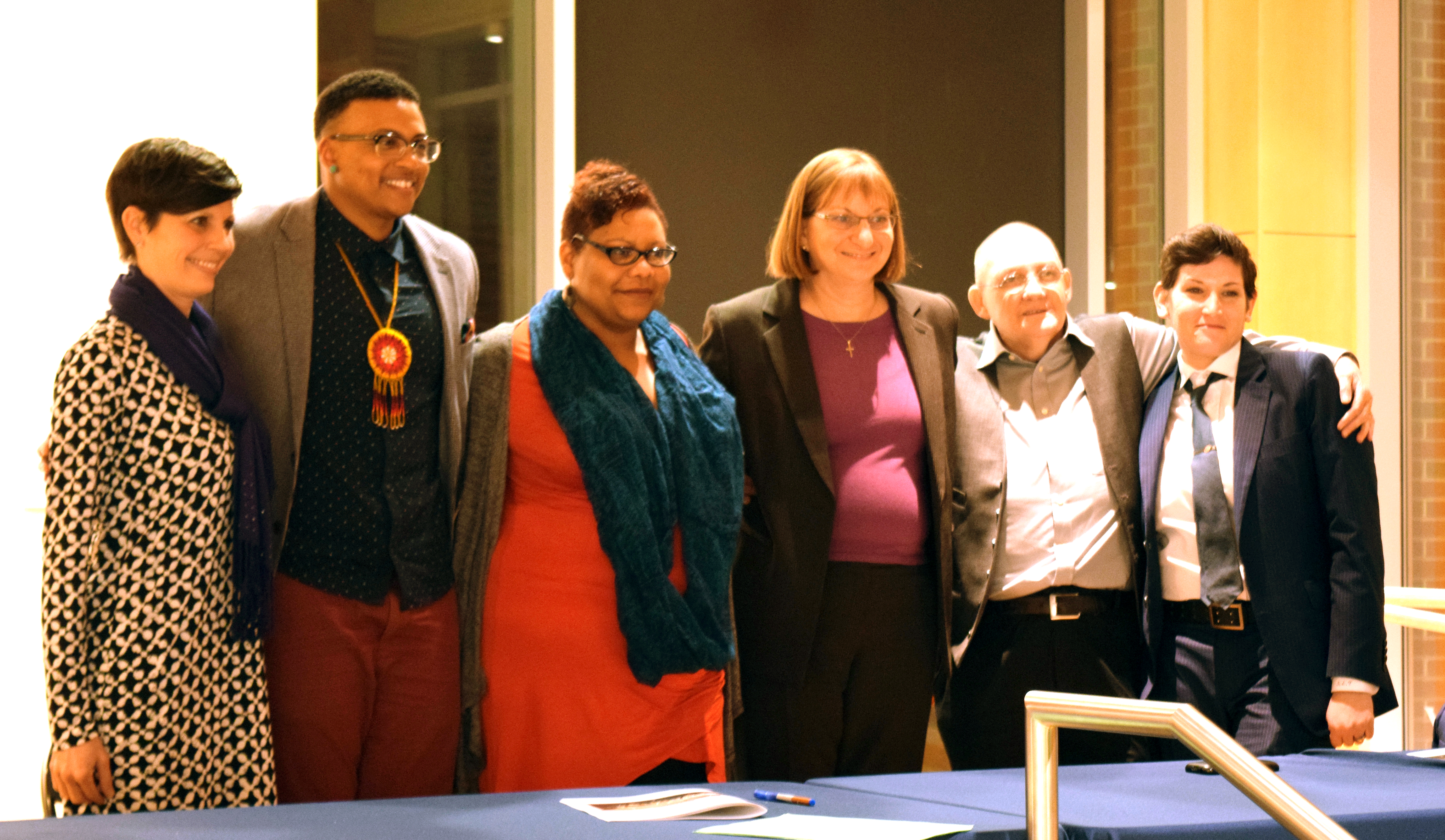By Yuri Smishkewych | Posted March 4, 2016
Hindsight, it is said, has 20/20 vision.
On September 22, 2010, 18-year-old Rutgers student Tyler Clementi ended his life as a result of cyber-bullying after his college roommate streamed an intimate act between Tyler and another man online.
“If someone had only reached out to Tyler to say: ‘We’re here for you. We’re your friends and we want to make you feel safe,’” said Tyler’s mother, Jane Clementi, speaking at a panel discussion at Kean’s Human Rights Institute, “the story would’ve been much different.”
And that is why in retrospect, not only from Tyler’s story, but also the other countless victims of cyber-bullying, that we have learned the importance of having a safe place for people to turn to in their most desperate hours.
“We want our youth to be able to go to school to learn and to feel safe while doing that,” said Syd London, the moderator of a panel discussion held on Feb. 23 at the Human Rights Institute that explored ways in which members of the academic community can create safe places in their schools.
The event, titled Whose Schools? OUR Schools! was organized by the Kean Diversity Council and featured four panelists from different walks of life sharing their life experiences and who are active in the LGBTQITSGNC (lesbian, gay, bisexual, transgender, intersex, Two-Spirit Native Americans and gender nonconforming) community.
Over a hundred people made up the audience that included Kean alumni, professors and staff, K-12 teachers from different parts of New Jersey, and even some high-school students, one as far as Pennsylvania.
One the topics explored at the event was how teachers are in a unique position to help LGBTQ+ students feel safe, as some students may come from a troubled home environment.
“Although I only went to school until the sixth grade,” said panelist Jay Toole, “and because of all the chaos in my house—my father and brother were raping me almost every night— going to school everyday was my outlet and feeling safe.”
Toole, who is 67 and was homeless for decades in New York City, later spoke about how one particular teacher, Sister Caroline, had a particular impact on her.
“I think she knew what was going on at home—so she taught me how to box. I think she was trying to show me how to protect myself. It showed me how to survive living in a box, in jail, and how to survive being a stone butch [lesbian] 13 year old living on the streets,” said Toole.
Members of the audience were given a chance to ask questions to panel, like Special Education Teacher Jamie Farber of Summit High School, who asked about the usage of the terms ‘gay,’ ‘lesbian,’ or ‘queer,’ and how they’re used.
“It’s all an individual choice, it’s all about how you identify [yourself],” answered London, who identifies herself as queer or gender non- conforming, “I don’t fit in these easy boxes, even within the LGBTQ+ community. That’s why it’s important to ask for a person’s preferred gender pronoun.”
Teachers weren’t the only ones asking questions, high school senior Taos Briggs of Cumberland Valley High School (P.A.) asked how students can address the concerns of LGBTQ+ students to their teachers.
“If you have a person like this student,” said Holiday Simmons after commending Taos for bringing such an important question up, “link with them to help make change in your school.”
The panelists included Jane Clementi, co-founder of the Tyler Clementi Foundation, Holiday Simmons of Lambda Legal; Jay Toole founder of Jay’s House, an organization working to create New York City’s first LGBTQ+ adult shelter and co-founder of Queers for Economic Justice; Collette Carter, author and former co-director for the Audre Lorde Project.
Yuri Smishkewych may be reached at ysmishke@kean.edu.
